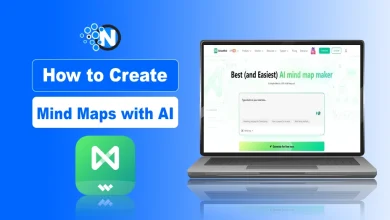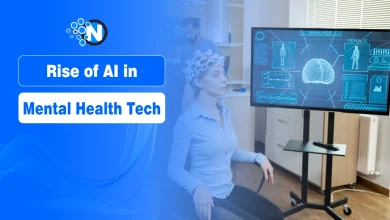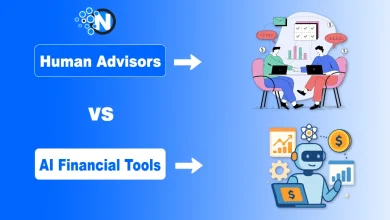AI Testing Tools – Implementing Machine Learning in Test Automation

The software testing sector is only one of several that has been irrevocably altered by the aggressive introduction of AI. In app development, you cannot skip testing as it helps guarantee the performance, functionality, and reliability of modern apps. By using AI testing tools, you can use the capabilities of ML and AI to bridge traditional testing gaps.
If you’re looking for the best AI testing tools and how to implement them, this is the right place. In this article, we will uncover the role of AI in test automation. During our analysis, we’ll also highlight the major benefits of AI testing tools, their challenges, and various implementation strategies.
Understanding AI and ML in Test Automation
Before we start discussing the role of AI testing tools, we must develop a clear conception of AI and ML in the first place:
- AI or artificial intelligence is used to signify the simulation of human intelligence by machines. This advanced feature is capable of performing various tasks that typically require the inclusion of a human being.
- Machine learning, on the other hand, is a subset of artificial intelligence. It allows systems to learn and improve from experience without being explicitly programmed to do any specific task.
In the world of automation testing, artificial intelligence and machine learning techniques are very important to enhance the test generation process, predict potential test failures, and also optimize test coverage. These inclusions also have a crucial role in analyzing huge sets of test data and predicting a test outcome accurately.
To further improve our knowledge about artificial intelligence-based automation testing, let us take a quick look at the major differences between AI testing and traditional software testing practices:
| Feature | Traditional Testing | AI/ML-Powered Testing |
| Test Case Creation | Manually scripted test cases | Auto-generated test cases using ML |
| Data Analysis | Relies on manual intervention | Automated insights and anomaly detection |
| Test Maintenance | Reactive to UI/UX changes | Adaptive maintenance with AI |
| Execution Speed | Linear and time-intensive | Parallel and optimized |
Benefits of AI-Driven Testing Tools
To further understand the role of artificial intelligence in modern automation testing practices, we must have a clear idea about all the benefits that it will offer to the developers and testers:
- AI-powered testing tools will eliminate human errors, especially in repetitive testing actions.
For example, visual artificial intelligence can find user interface defects that manual testers might usually miss. Therefore we can easily say that artificial intelligence has a crucial role in improving the accuracy of the testing processes.
- Machine learning algorithms will help analyze application logs to identify untested areas. This approach will help suggest additional test cases to ensure better test coverage and reliability of every element present in the application.
By using self-healing capabilities, artificial intelligence tools will adapt to changes within the web application. These changes can include user interface modifications. This entire implementation will help reduce test maintenance overhead to improve the scalability of the test scripts.
- Artificial intelligence provides crucial insights into potential problem areas. This data will enable the testing teams to address issues before they escalate and turn into major concerns to the application’s architecture.
Finally, artificial intelligence will help automate time-consuming processes like regression testing. Application testers can drastically cut down on testing time and yet provide high-quality apps quickly by using this procedure.
Key AI-Powered Testing Tools
Currently, you will find various tools in the market that will allow you to utilize the potential of artificial intelligence and machine learning to optimize test automation. To help you develop a more thorough idea about these tools, we have mentioned some of the most noteworthy names on this list:
1. LambdaTest
LambdaTest is the perfect choice if you want to implement AI testing on your automated cross-browser test cases while running them over a cloud-based device farm. At its core, LambdaTest is an AI-powered test orchestration and execution platform that lets you perform manual and automation testing at scale with over 3000 real devices, browsers, and OS combinations.
This platform will also assist you in the test debugging process with comprehensive test reports, including screenshots and videos. All these additions are aimed at helping you quickly find the faulty elements and implement the required resolution steps.

2. Selenium with AI Enhancements
Although Selenium does not natively support the inclusion of artificial intelligence, you can enhance its capabilities with AI libraries. This integration will help you implement various advanced practices like intelligent locators and predictive test case generation.

3. Applitools
Applitools helps you perform visual testing with user interface validation to ensure the proper placement and interaction of all the UI elements present in modern web applications.
Using the AI features of this tool, you can implement visual AI comparisons with various screenshots to implement a baseline structure. These features will also help you detect visual bugs across multiple browsers and devices to implement a consistent UI structure.

Implementing Machine Learning in Test Automation
There are various scenarios where you can implement machine learning in the test automation process. To further help you understand this step, we have mentioned some of the most common areas that can benefit from the inclusion of ML:
Test Case Generation
Machine learning models can analyze various user requirements, user stories, and historical test cases to auto-generate new test scripts. For example, natural language processing can process your requirement documents and create relevant test cases based on the data in it.
Anomaly Detection
You can also use machine learning to analyze logs, execution patterns, and performance metrics for identifying anomalies in real time. This is a very crucial factor in finding out errors before they can turn into major concerns in the test execution process.
Smart Test Prioritization
Machine learning models will help you prioritize test cases based on various factors, like historical defect density, criticality of application features, and risk analysis. The primary goal of this approach is to ensure that the most important structure of the application is functional in all instances.
Self-Healing Tests
AI power tools will help keep watch on element locators during the test execution process. Whenever it detects any change within these locators, the tools will automatically update the locators to avoid test failures. This is another crucial factor when you’re working with complex testing scenarios that consist of thousands of individual test scripts.
Performance Testing
Artificial intelligence can help you analyze performance metrics, predict bottlenecks, and also simulate user behavior more accurately. You can use all of this data to understand how your application will behave when it is exposed to various real-world parameters and user interactions.
Challenges in Adopting AI in Test Automation
In spite of being so useful in modern test automation practices, the adoption of artificial intelligence comes with a significant share of challenges. We are going to mention all of these challenges so that you can prepare yourself beforehand during the integration process:
- AI models will require large datasets for training. In case you have insufficient or poor-quality data, it will massively impact the effectiveness of your AI models.
- If you are trying to integrate artificial intelligence into existing workflows, you will require significant technical expertise and resources. Moreover, the execution of AI-based automation testing will also implement steep learning curves for the existing developers and testers.
- Artificial intelligence tools often involve higher upfront costs compared to traditional tools. This will make AI testing less compelling for individual testers or small companies.
- AI testing tools will learn and propagate biases if not trained properly. Additionally, handling sensitive test information will require strict security measures to ensure that you are not using sensitive user information to train your AI models.
- Finally, while artificial intelligence improves the efficiency of test automation, overreliance on any of these practices can lead to major issues that human testers might catch and eliminate easily.
Best Practices for Implementing AI Testing Tools
Considering all the advantages and challenges of implementing AI testing tools, we would like to advise the developers and testers to implement the following best practices to maintain a perfect balance for ensuring optimal productivity and quality:
It is important to identify specific areas where artificial intelligence can provide the most value. Some of the common areas include test case creation, defect prediction, or annual test maintenance procedures. Based on these areas, the testers can proceed towards the AI implementation processes.
Since artificial intelligence is still in the early phases, it is advisable, to begin with pilot projects to test the feasibility and effectiveness of artificial intelligence tools. Based on early reports and feedback, the testers can continue scaling and increasing the scope of AI testing within their test environment.
To reduce the cost of implementing AI testing tools, the testers can use open-source frameworks like TensorFlow or Scikit Learned to build custom machine learning models. You can also customize this model based on your testing needs or project requirements.
In spite of the implementation of artificial intelligence and machine learning, the testers must continuously monitor and train the existing AI models. As part of this process, it is important to regularly update the ML models with new data to maintain their accuracy and relevance based on the changing requirements of the app market.
You should also watch out for all the upcoming AI testing trends like hyper-automation, AI-powered test bots, and AI in continuous testing. The inclusion of these will help further streamline your testing practices.
The Bottom Line
Based on all the factors that we discussed in this article, we can safely say that artificial intelligence and machine learning will transform the world of test automation. These advanced technologies will enable you to implement faster, more accurate, and efficient testing practices. The final goal of this implementation is to ensure high-quality software delivery in competitive markets.
Strategic implementation and constant optimization can maximize the promise of early artificial intelligence adoption, notwithstanding its challenges. To stay ahead in this fast-changing industry, firms must adapt this transformation.
Finally, by using the right AI tools and testing practices, you can redefine your testing processes to achieve higher reliability and also deliver exceptional user experiences to your customers.




